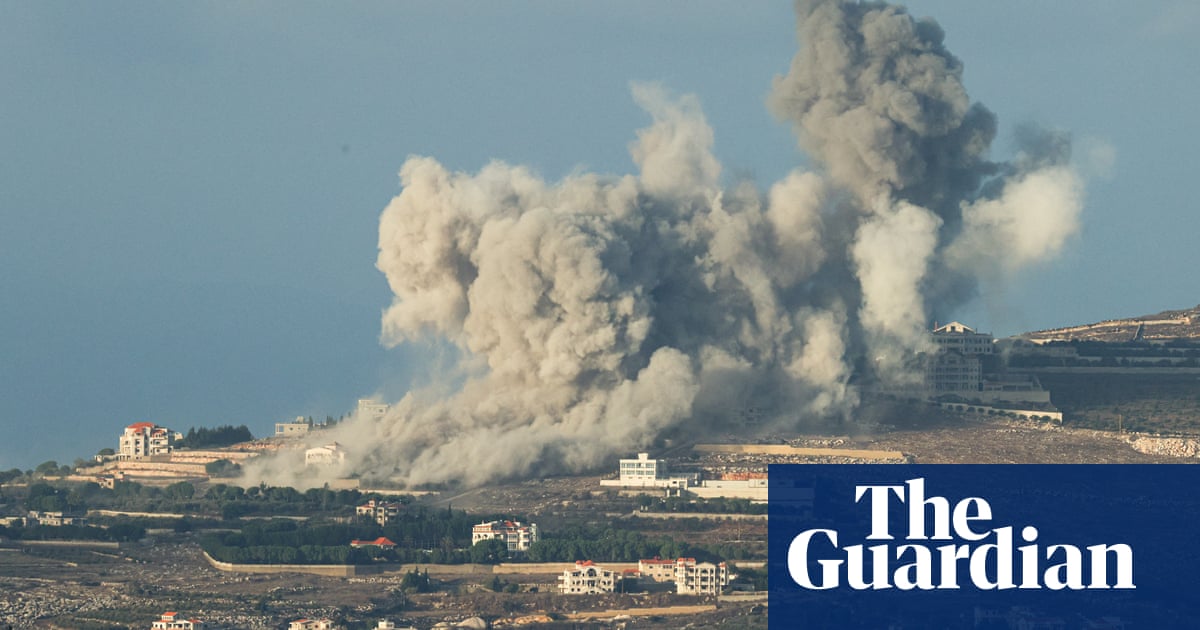Israel’s long-threatened ground operation into southern Lebanon appears so far to have been on a far smaller scale and with more modest objectives than had been anticipated from previous statements.
The operation, involving formations from one Israeli division in the first instance, appears limited and has largely avoided any direct clashes between Hezbollah and Israeli troops.
Israel has said its main objective is to eliminate the threat of a 7 October-style incursion by Hezbollah into Israel’s north – one of the main fears that drove Israelis out of northern communities in the early stages of the war in Gaza.
Whether or not Hezbollah’s Radwan special operations force was seriously planning to attack en masse into Israel is unclear.
Although the alleged plan was talked up by Israeli officials before the ground incursion, it would have marked a departure from previous, small-scale attempted incursions.
“Hezbollah planned to invade Israel, attack Israeli communities and massacre innocent men, women and children,” the senior Israel Defense Forces (IDF) spokesperson, Daniel Hagari, said on Tuesday. “They called this plan ‘Conquer the Galilee’. If the state of Lebanon and the world can’t push Hezbollah away from our border, we have no choice but to do it ourselves.”
Hagari’s claim does not explain why Hezbollah has up to now limited itself to firing rockets into Israel – following rules of engagement that appeared aimed at maintaining the conflict below the threshold of escalation. An incursion of fighters into north Israel would have made more sense when the Israeli military was more heavily distracted by fighting in Gaza, and the IDF’s deployment in the north was spread thinner.
It is worth assessing Hagari’s comments in the context of a wider Israeli information and messaging campaign about a ground operation. The campaign’s talking points have sometimes appeared contradictory, as Israeli officials and political leaders try to appeal to different audiences.
Politically, the displacement of tens of thousands of Israelis from the country’s north has become increasingly toxic for the prime minister, Benjamin Netanyahu, and has fed into the country’s fractious politics.
Netanyahu’s far-right coalition partners, including Itamar Ben-Gvir and Bezalel Smotrich, have tried to the exploit the worsening tensions in the north by demanding that something must be done to return displaced Israelis.
Their demands have played on a wide and deeply felt anxiety in Israel’s northern communities that they might face the same fate as the victims of Hamas on 7 October.
after newsletter promotion
There is no doubt about the existence of substantial Hezbollah infrastructure on the border, but they are positions that in some cases have existed for several decades.
“To the best of my understanding, this move is designed to target infrastructure that Hezbollah built, and parts of which we were unfamiliar with,” Israel Ziv, a former director of the IDF Operations Directorate, told Israel’s 103 radio station hours after the attack was launched. Ziv said some of that infrastructure had been built by Hezbollah as attack positions for a potential incursion.
“The [Israeli] move here now isn’t some large-scale ground manoeuvre but truly one to remove a threat to the communities near the border, and this is absolutely part of the defensive operation. To perceive this as a wide-scale ground manoeuvre in Lebanon or an operation of conquest or [forming] a security zone – I think it isn’t.”
While in the past Israel has sought through military action and diplomacy to insist – unsuccessfully – on the need for a wider buffer along its northern border, the scope this time so far appears to be limited to Lebanese border villages that Israel says Hezbollah has turned into positions from which it can attack.
Ziv, like others, thinks the current scope of the continuing operation will not necessarily mean an end to indirect fire across the border.
“Underneath that envelope [of limited military action], a war of attrition might still continue, with rocket and mortar fire and anything else, which won’t really allow life in the northern communities,” he added. “That’s why that reaching a [diplomatic] settlement and isolating the threat at a far greater distance is far more significant.”
Writing in Haaretz, the paper’s longtime military correspondent, Amos Harel, alluded to the political imperatives of the campaign, suggesting it was as much “meant to serve as a tranquiliser for the evacuated residents of northern Israel, who will hesitate to go home even after the bombings of Beirut and Bekaa”.
“In their view,” he added, “the urgent threat that must be dealt with lies just across the border fence.”
Israel also seems determined to communicate – to the Biden administration in particular – that the incursion is intended to be limited in terms of reach and duration.
As in all conflicts, as the cliche goes, “the enemy gets a vote” in where the operation will go from here.
Whether the ground fighting remains constrained to a few kilometres on the border – or whether both sides are drawn into a more complicated fight neither had necessarily planned for – will rely in part on how Hezbollah responds.

